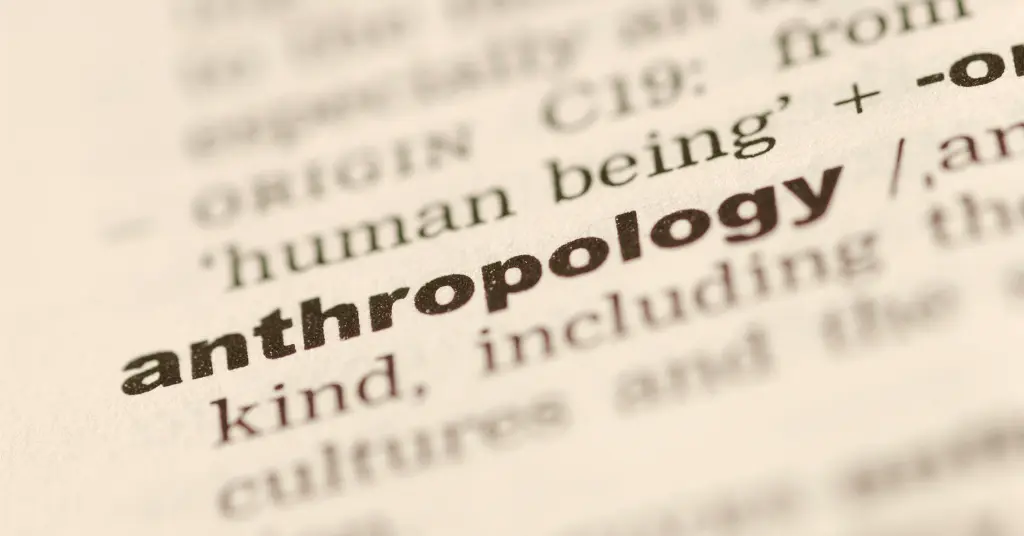AI Answer Evaluation Platform Live Now. Try Free Answer Evaluation Now
Father of Anthropology
“Anthropology – The science of man” as coined by Aristotle, is a study of man from different perspectives and areas associated. It has been a study across time and space. E. B Tylor in his book- “Anthropology: An introduction to man and civilization” (1881) , defined anthropology as a “ study of old remains of people, physical features, races, language, custom and practice of primitive people.”

Anthropology is the holistic study of biological and sociocultural evolution, it is that synthetic science that has close links with other social and biological sciences, yet it is unique and more inclusive than others which leads to the universalism of Anthropology. Anthropology is a new subject and it occupies a significant position in the arena of subjects.
Origin and Growth
Anthropology as a discipline has emerged due the inquisitiveness of colonial rulers, administration and scholars to understand the other people, cultures and nationalities in the years of 1700s and early 1800s. The anthropological texts produced by them were highly ethnocentric in nature and gave rise to understanding of anthropology as ‘study of other cultures.’ T. K Penniman in his book ‘ A 100 yrs of Anthropology (1935)’, has described phases of growth of Anthropology.
- Formative Phase – The formative phase is the age before 1835 . This phase includes the views of ancient scholars such as Aristotle, Socrates and Plato who were conducting studies of Anthropological nature as early as 4th century B.C. Roman philosophers like Leucetius and Tacitus were significant contributors.
- Convergent Phase – This phase lasted from 1835 till 1859. Sociologists such as August Comte and Herbert Spencer started talking about social anthropology. However , anthropology was still not studied as a separate discipline but understood to be systematic observation and examination of ‘ man as a physical and moral being’.
- Constructive Phase – The period from 1859 to 1900 is considered to be the constructive phase of the origin of Anthropology. 1859 is the landmark year as Charles Dawin’s work on the ‘ Species of Origin by means of Natural Selection’ was published, subsequently two theories of evolution was developed namely Organic Theory and Cultural Theory. The classical evolutionists such as E. B Tylor and L.H Morgan suggested that the culture evolved in a unilinear manner. Due to this theory Anthropology got a place in Oxford University as a separate discipline in 1884. In 1889 Torres strait expedition led by W.H.R Rivers, conducted the first systematic fieldwork in Anthropology.
- Critical Phase – This phase was stretched from 1900 till 1935.Radcliff Brown visited Andaman and Nicobar Island and studied Onge Tribe. On the basis of this study he developed ‘structural functionalist’ school of thought. In 1914-1918 Malinowski conducted fieldwork among Trobriand Islanders, this led to the development of participant observation which later became the hallmark of Anthropology. It also led to the emergence of fields like functionalism and economic anthropology. Post 1920 studies on peasant society began that was pioneered by Robert Redfield.He postulated the very famous concepts of Great and little tradition, Folk-Urban continuum etc.
Since then , Anthropology is no longer a study of just Tribal societies rather all societies. Post 1935 interdisciplinary and international approach has enhanced its holistic outlook. Emergence of sub fields like Psychological Anthropology , Ecological anthropology, Medical Anthropology etc took place and they became specialisations under the ambit of Anthropology. Ergo, anthropology has risen from colonial history to scientific history.
Four Founding Fathers
Anthropology has been a vast and Holistic subject since its inception. One of the reasons being that it was studied in different societies by different scholars and with different perspectives. So to name one anthropologist as a father of anthropology would not be justified. Although, in most of the regions across the world Franz Boas is given the centre stage and is considered as the father of anthropology. But the other three founding fathers have been equally important for the emergence of Anthropology as a separate discipline. Let us know in detail about them:
Franz Boas (1858-1942) – Franz Boas was a German and is considered as the father of American Anthropology and the pioneer of Modern Anthropology. He was the first professor in Colombia University who taught Physical Anthropology and then Anthropology as a separate discipline in 1899. Among his students were the famous anthropologist Ruth Benedict and Margret Mead. Franz Boas gave the Theory of cultural relativism which highlights the individuality of cultures. He criticised the concept of ethnocentrism, which was prevalent in the first half of the 20th century and believed that no culture is inferior or superior, they are just different. Therefore, they need to be studied individually without any prior bias. He opposed scientific racism and supported the four field approach which focused on the holistic study of culture. This brought cultural anthropology, linguistic anthropology, physical anthropology and archaeology together.
Franz Boas played a key role as a founder of American Anthropological Association and later on helped in its organisation and development as an important institution for anthropology and its fraternity. Some of his famous publications consisted of literary works such as “ The mind of a Primitive Man”(1911), “ Anthropology and modern life” (1928), “Race, language and Culture”(1940) etc. He also began the field research in Inuit tribe of Baffin Island, this fieldwork and study of culture made him believe that societies are fundamentally equal, refuting the idea of civilised societies vs primitive societies.He supported the primary source of data collection. Franz Boas has had an indissoluble impact on anthropology. Almost every postmodern anthropologist accepted his commitment towards methodological cultural relativism and Empiricism.Anthropologists continued to follow and honour his critique of racial ideologies through his 1963 book,” Race: The History of an Idea in America”, which was published posthumously.
Bronislaw Malinowski (1884 -1942) – Malinowski is sometimes considered as the father of European Anthropology. He is one of the most influential pioneers of Anthropology specially British social anthropology. He introduced the theory of Functionalism and rejected the evolutionary paradigm. He showed how the functionality of a trait of the society or of the culture is the basis of it being transferred from one generation to other, no matter how illogical or superstitious it may look to others, it must have helped the society or that cultural group to cope up with the changing environment around them.Malinowski spent two years in the Trobriand Islands off the east coast of New Guinea, doing the long-term fieldwork that revolutionised anthropological research methods.
Malinowski diverted cultural anthropology away from an evolutionary focus into a science that embraced a sociological and psychological field of inquiry. His work on the Kula tribe gave rise to anthropological theories concerning Reciprocity and Gift exchange. He also worked significantly on magic and religion. He was the first anthropologist to advocate Participant Observation as a method of research. Some of his famous literary works are “ The Trobriand Island (1950)”, “ The dynamics of culture change (1945)”,“ Magic, science and Religion (1948)”etc. Malinowski, along with Radcliffe-Brown, is considered as the father of Modern social anthropology.
Alfred Reginald Radcliffe-Brown (1881-1955) – R.C Brown was a British social anthropologist who developed the theory of Structural Functionalism. He was a student of Franz Boas and W.H.R Rivers. Structural functionalism describes the idea that the life of a society may be viewed as a dynamic system of functionally consistent, interdependent traits. Emile Durkheim,the famous german sociologist highly influenced R.C Brown which made him transform anthropology into real science based on natural sciences. He also studied Kinship as a self-sustaining entity of social structure which helps in studying the religion, politics and economic subsistence of a society.
Brown also studied the phenomenon of Totemism and gave two theories related to it. According to him totemism was an absolute development of the symbolism of nature. R,C Brown studied Australian Aborigines and the institution of promiscuity in them. Some of his famous publications include “The distribution of native tribes in part of western Australia (1912)”, “The Andaman Islanders : A study in social Anthropology (1922)”, “A natural science of society (1948)” etc. In his later art of lie R.C Brown continued to research on the social structure of the primitive groups.
Marcel Mauss (1872-1950)- Mauss was a sociologist and an anthropologist. He is often referred to as the father of modern French anthropology. He is best known for his study of Gift exchange and its relationship with modern economic systems.He studied the concept of Reciprocity. According to him, the “free” gift that is not returned is a contradiction because it cannot create social ties.Mauss’ augmented that solidarity is achieved through the social bonds created by gift exchange. The most famous literary work of Mauss was “ The Gift”(1925). He also strengthened the link between psychology and anthropology.
Father of Indian Anthropology
Sarat Chandra Roy (1871-1942) – S.C Roy was the first Indian Ethnographer and the very first Indian Anthropologist. He started off his career as a teacher and then a lawyer in Ranchi district of Jharkhand. While pleading for the cases related to tribal people his interest grew in their life and conditions. He studied the Munda , Oraon and other tribal groups in the Chotanagpur division. Their plight moved him and as a result he stayed with indigenous people to know more about their language, culture , customs, how they benefited humanity etc. He wrote pioneering monographs that would set the ground for wider understanding and future research.Finally he wrote about his interpretations of their customary laws, culture, religion and practices. Ergo, producing ethnographies for decades.
Some of his famous literary works are “ The Munda and their country (1912), Oranos of Chotanagpur (1914), The Birhors (1925), The hill Bhuiyas of Orissa (1935).” etc. He also authored Journals like “ Man in India (1921) and Totemism among Asur and Ho”. He later on became the president of the Anthropological section of the Indian science congress and also a member of folklore society of London in 1920.
Mother of Anthropology
Margret Mead (1901-1978)- Mead was an American Cultural Anthropologist and due to her extensive research in the field of Anthropology she is considered as the mother of anthropology. She was a student of Franz Boas and was greatly influenced by him. She did many field research in the south seas and was famous for her studies of the nonliterate peoples of Oceania, she highlighted the various aspects of psychology and culture, culture change, the cultural conditioning of sexual behaviour and natural character.
Mead also worked significantly for untouched topics such as women’s rights, child rearing, sexual morality, nuclear proliferation, race relations, drug abuse, population control, environmental pollution, and world hunger at that period of time.She published reports that describes the point of view of societies towards sex in Southeast Asia and South Pacific traditional cultures.These reports played an impactful role in the sexual revolution of 1960s.She supported the idea of broadening sexual conventions within the context of Western cultural traditions. This made her famous and gave her celebrity status.
Mead said that ”human nature was malleable”, and human behaviour varied between societies.She studied gender consciousness that is how gender affects the beliefs, preferences, and overall life of an individual. She also studied imprinting that denotes children learn by observing adult behaviour. Mead observed and researched the cultures of New Guinea and Bali while noticing how differently they lived from American citizens. She concluded that adolescent girls in Samoa had more casual attitudes about dating than American adolescents.
Many of Mead’s theories are still controversial in modern times, and social scientists engage in rigorous debates about the subjects of her theories.Nonetheless, she is still widely respected by many researchers as a great scientific scholar and Anthropologist. Some of her famous Literary works include “ Coming of age in Samoa (1928), Growing up in New Guinea (1930), Sex and Temperament (1935), Male and Female: The study of sexes in the changing world (1949), Anthropology : A human science (1964), Culture and Commitment (1970)“etc. She has also served as president of the Society for Applied Anthropology in 1950 and of the American Anthropological Association in 1960.
Conclusion
Anthropology is a novel discipline and it originated and developed due to the enlightenment of various scholars across the world. Some of them absolutely dived in the subject and gave it the required limelight it needed. Although the pioneers mainly belonged to Europe and America, India had its own share of anthropologists. Women were equally invested in the field of anthropology since its inception and contributed significantly to this discipline. Therefore restricting the title of “Father of Anthropology” to one scholar is not convincing , for this reason we study all the pioneers as four fathers and mothers of Anthropology.




